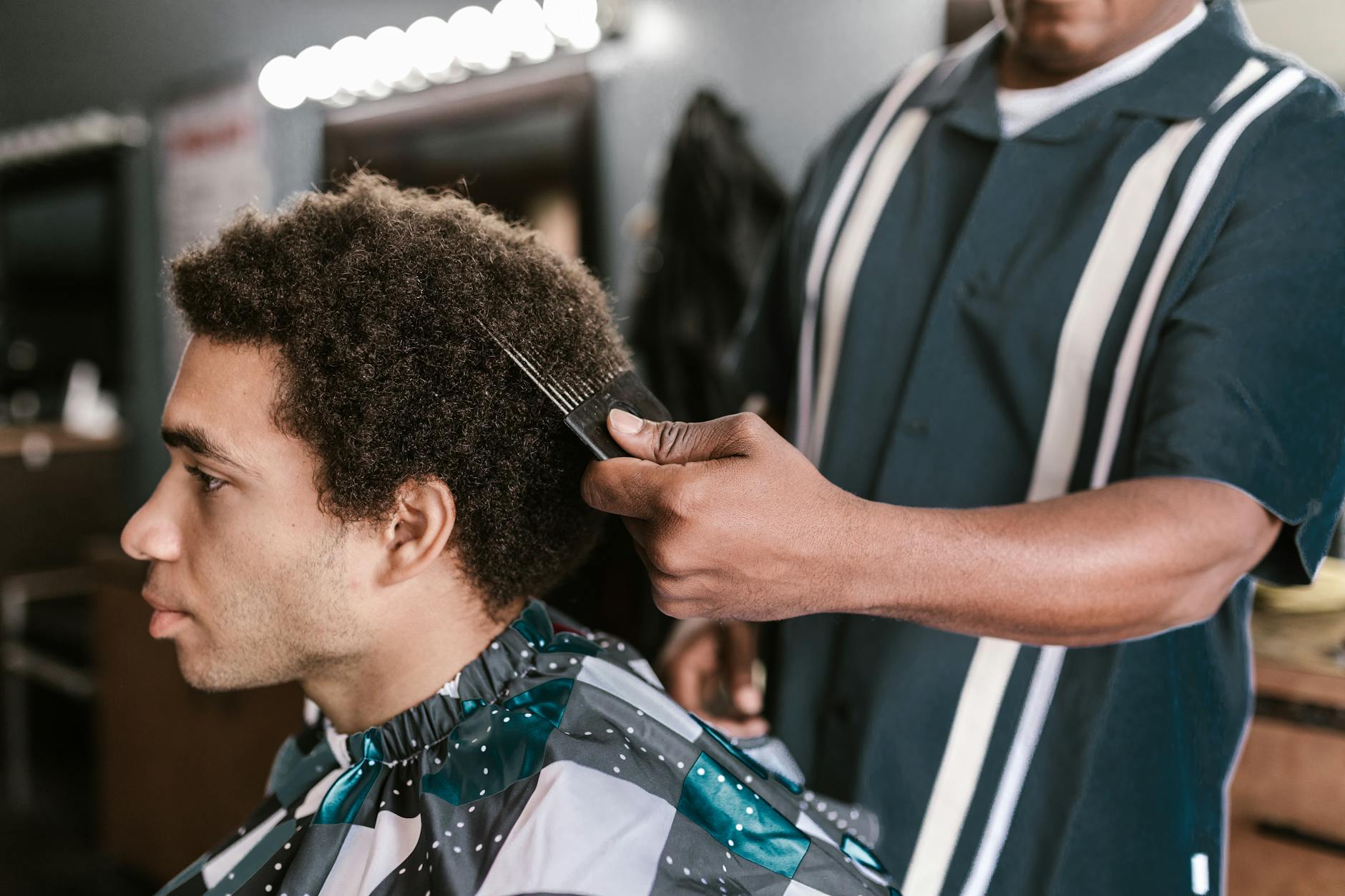Embracing the Crown: The Impact of Natural Black Hair on the Civil Rights Movement
Embracing the Crown: How the Battle for Natural Black Hair Propelled Civil Rights
Unveiling the untold story: How the fight for natural black hair transformed the course of Civil Rights.

Image courtesy of RDNE Stock project via Pexels
Table of Contents
- The Historical Significance of Natural Black Hair
- Legal Battles: Addressing Discrimination against Natural Black Hair
- Media Representation and the Influence on Perceptions of Natural Black Hair
- The Power of Representation: Celebrating Natural Black Hair
- The Way Forward: Breaking Barriers and Encouraging Acceptance
Imagine a world where your natural hair is deemed inappropriate or unprofessional. A world where you are coerced into altering your appearance to fit societal expectations, erasing your cultural identity in the process. Unfortunately, this is a reality many individuals with natural black hair have faced for countless years. In recent times, the fight for natural black hair has transcended the realm of personal choice and emerged as a civil rights issue, shedding light on the deep-rooted discrimination faced by black individuals in our society. Let us delve into the historical significance, legal battles, media representation, and the way forward in celebrating and acknowledging the significance of natural black hair as part of the civil rights movement.
The Historical Significance of Natural Black Hair
In order to understand the present battle, it is crucial to recognize the cultural and historical significance of natural black hair within the black community. Hairstyles such as braids, afros, and locks have been deeply rooted in African and African-American traditions for centuries. These hairstyles were not only a means of self-expression and cultural pride, but they also served as symbols of resistance during times of enslavement and racial injustice.
However, the oppressive nature of systemic racism attempted to suppress the celebration of natural black hair. Eurocentric beauty standards were imposed on black individuals, urging them to strive for straightened hair or conform to hairstyles that aligned with white culture. The black community was systematically made to believe that their natural hair was unprofessional, unkempt, or even undesirable. The civil rights movement emerged as a catalyst in reclaiming these natural hairstyles and rejecting the notion that black hair should conform to white ideals.
Legal Battles: Addressing Discrimination against Natural Black Hair
Discrimination against natural black hair has not been limited to societal biases but has also seeped into workplaces, schools, and other public spaces. Many individuals have bravely fought against this discrimination through legal battles, igniting a nationwide conversation about the importance of protecting one's cultural identity and right to wear natural hairstyles.
Landmark legal cases such as the 2019 Crown Act, signed into law in California and later adopted by several other states, explicitly prohibits discrimination based on natural black hairstyles. These legislations have helped raise awareness about the unequal treatment faced by individuals with natural hair. They have prompted businesses and institutions to reevaluate their dress code policies to ensure they are inclusive and promote diversity.
Embracing our natural hair is more than a style, it's a revolution! Join the movement that propelled civil rights forward. #EmbraceTheCrown #NaturalHair #CivilRights More NewsTweet Quote
Media Representation and the Influence on Perceptions of Natural Black Hair
Media representation has played a significant role in shaping societal perceptions about natural black hair. Historically, mainstream media often portrayed Eurocentric beauty standards as the epitome of desirability, relegating natural black hair to the margins. However, in recent years, a shift has occurred, with influencers and content creators leveraging various platforms to challenge these norms and celebrate natural black hair.

Image courtesy of www.amazon.com · In stock via Google Images
Black hair influencers and advocates have emerged across social media platforms, showcasing an array of stunning natural hairstyles and spreading awareness about the importance of embracing one's natural hair texture. Their visibility and positive influence have not only empowered individuals to embrace their natural hair but have also worked towards dismantling the notion that black hair is unprofessional or improper.
The Power of Representation: Celebrating Natural Black Hair
The fight for natural black hair as a civil rights issue is not just confined to legal battles and media representation; it is a celebration of individual identity and cultural pride. Representation plays a pivotal role in providing a sense of belonging and self-acceptance for individuals with natural black hair. It is a powerful tool in combatting the deeply ingrained prejudices and stereotypes that surround black hair.
It is heartening to witness influential figures from various fields, including entertainment, politics, and sports, embracing their natural black hair. From musicians like Solange Knowles and Lizzo to public figures like Michelle Obama and Serena Williams, these individuals are shining examples of how natural black hair should be celebrated and respected.
Additionally, numerous initiatives and movements, such as "Black Hair Magic" and "The Natural Hair Movement," have emerged to promote self-acceptance and foster cultural pride. These platforms provide resources, support, and safe spaces for individuals with natural black hair to connect, share experiences, and inspire each other.
The Way Forward: Breaking Barriers and Encouraging Acceptance
While progress has been made in the fight for natural black hair as a civil rights issue, challenges persist. Education and awareness are imperative to combatting discrimination and promoting acceptance. By educating the broader society about the cultural significance of natural black hair and challenging ingrained biases, we can work towards a more inclusive and tolerant society.
Furthermore, it is crucial for individuals, regardless of their background, to actively support the fight for natural hair acceptance. Allies can contribute by actively listening to the experiences of those affected by discrimination, amplifying their voices, and standing against discriminatory practices within their own circles.
In conclusion, the battle for natural black hair is not just about hair; it is about acknowledging and respecting the rights of individuals to embrace their cultural heritage and celebrate their identity. By understanding the historical significance, supporting legal battles, challenging media representations, and promoting acceptance, we can collectively propel the civil rights movement towards a future where every person, regardless of their hair texture, is celebrated and respected for their uniqueness. Let us unite in embracing the crown that is natural black hair.
